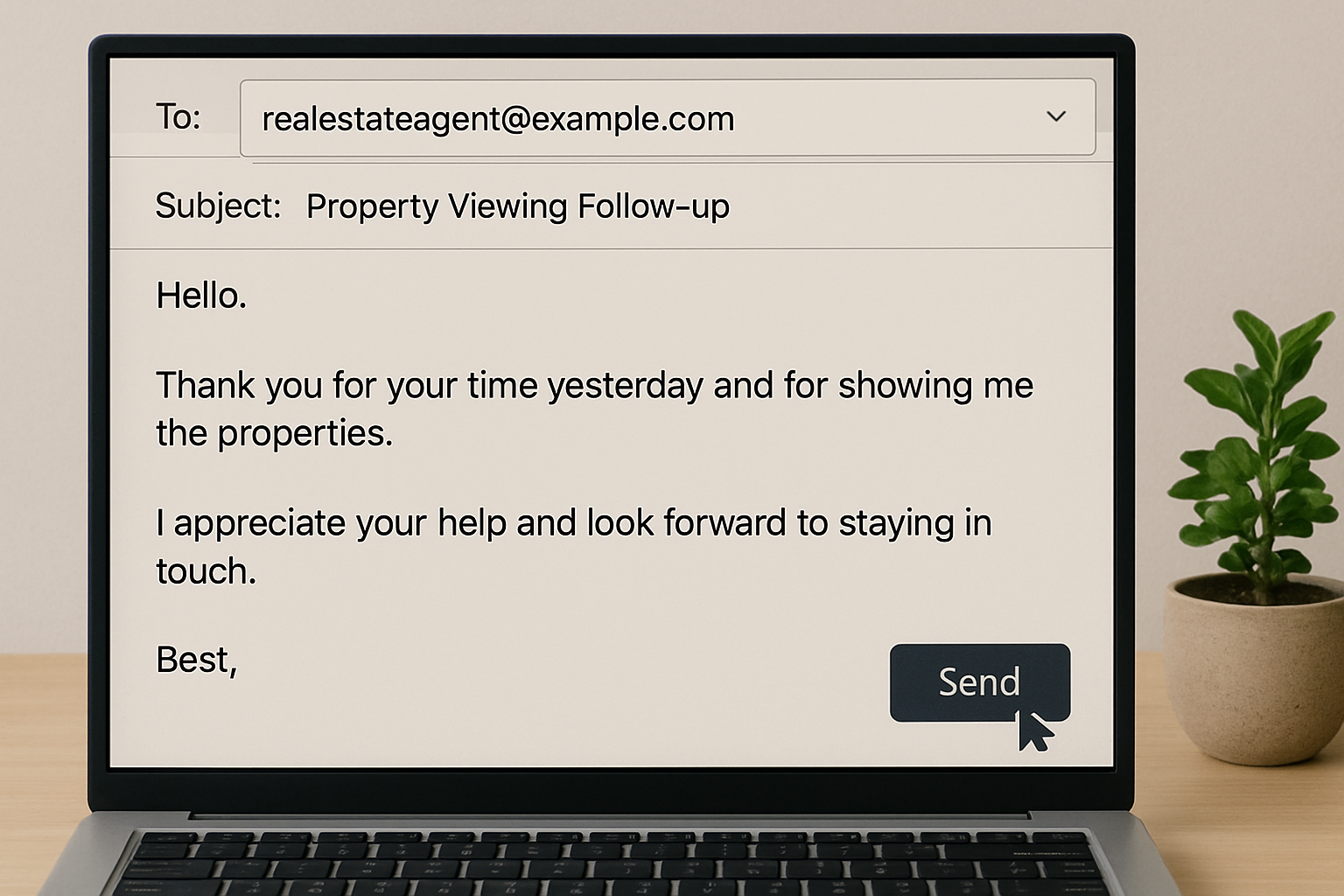For those of you who are considering selling real estate, "how long does it take to sell?" and "how can I sell quickly?" are probably the most important points of concern.
According to the latest data from the Real Estate Information Network for East Japan, the average period for selling real estate in the Tokyo metropolitan area in 2024 is approximately 3 months for condominiums and 4 months for detached houses. However, with proper strategy and preparation, this period can be significantly shortened.
As INA & Associates, Inc. we have assisted in the sale of numerous real estate transactions. By combining our experience in high-value property sales, especially for ultra-high-net-worth individuals, with the latest technology-enabled sales techniques, we have been able to provide many of our clients with satisfactory results.
In this article, we will provide detailed practical information ranging from the basic flow of real estate sales to specific tips for shortening the time frame. We hope you will find it helpful in making the sale a success.
Basic flow of real estate sale and duration of each step
Real estate sales can be divided into seven major steps. By accurately understanding the duration of each step, it will be easier to plan the sale and achieve a smooth transaction.
Seven Steps and Approximate Timeframes for Selling Real Estate
| Steps | Contents | Approximate time period | Main work |
|---|---|---|---|
| 1 | Preliminary preparation and market research | 2 weeks to 1 month | Market price survey, preparation of necessary documents |
| 2 | Real estate company selection and appraisal request | 1 to 2 weeks | Lump-sum appraisal, interviews, comparative study |
| 3 | Mediation contract conclusion and price determination | 1 week | Contract preparation, sales price setting |
| 4 | Sale activity and advertisement start | 1 to 3 months | Advertise property, respond to previews |
| 5 | Purchase offer and price negotiation | 1 to 2 weeks | Negotiation of terms and conditions, adjustment of contract terms |
| 6 | Conclusion of purchase agreement | 1 week | Preparation of contract, receipt of deposit |
| 7 | Settlement and delivery | 1 to 2 months | Settlement of remaining balance, transfer of ownership |
Detailed explanation of each step
Step 1: Preliminary preparation and market research (2 weeks to 1 month)
This is the preparation period before starting sales activities. At this stage, we investigate the sale price of similar properties in the surrounding area and ascertain the approximate market price. At the same time, necessary documents such as a certificate of registered rights and a property tax notice are prepared.
It is important to ensure that this period is sufficient, as inadequate preparation will cause delays in later processes. Especially in the case of inherited or jointly owned properties, it may take time to sort out the rights.
Step 2: Select a real estate company and request an appraisal (1-2 weeks)
We will request assessments from multiple real estate companies and select the most suitable partner. By utilizing a lump-sum appraisal service, you can efficiently compare the appraisal prices of multiple companies.
It is important to comprehensively evaluate not only the assessed value, but also the sales representative's responsiveness, the company's track record, and sales strategy. This choice greatly influences the success or failure of sale.
Step 3: Mediation contract conclusion and price determination (one week)
A mediation contract is concluded with the real estate company selected, and a final sales price is determined. There are three kinds of mediation contracts, "general mediation," "full-time mediation," and "under-exclusive-contract exclusive duty mediation," and each has different features.
Since pricing greatly affects the sale period, it is necessary to fully consider the market trend and the characteristic of a housing and to decide.
Step 4: Start of sales activities and advertisement (1-3 months)
Actual sales activities begin. We will post the property on real estate portal sites, distribute flyers, and respond to previews. This is the critical stage that most affects the overall duration of the sale.
The quality of the response to prospective viewers and the attractive presentation of the property directly affect the closing rate. On average, many cases are closed during this period.
Step 5: Purchase offer and price negotiation (1-2 weeks)
When an offer is received from a prospective buyer, negotiations on price and terms are conducted. At this stage, it is important to coordinate the wishes of both the seller and the buyer and find a point of agreement.
If negotiations drag on, other prospective buyers may miss out, so prompt and appropriate decisions are required.
Step 6: Conclusion of purchase agreement (1 week)
Once terms are agreed upon, a formal purchase agreement is concluded. This includes drafting the contract, explaining important matters, and giving and receiving the deposit.
Extreme care is required at this stage, as any deficiencies in the contract can cause problems later on.
Step 7: Settlement and delivery (1-2 months)
About one to two months after the sales contract is signed, settlement of the remaining balance and delivery of the property will take place. This period is established to allow time for mortgage procedures and registration preparations.
On the day of settlement, receipt of the remaining balance, delivery of the keys, and registration of transfer of ownership are all conducted at the same time to complete the sale process.
Differences in the period of sale by property type and the latest market data
The period of real estate sales differs greatly depending on the type of property, and we will explain in detail the characteristics of each property type and trends in the period of sales based on the latest data available in 2024.
Comparison of the time required to sell a property in 2024 by property type
| Property Type | Average time to sell | Characteristics |
|---|---|---|
| Used condominiums | Approx. 3 months (87.0 days) | High liquidity and early sale can be expected |
| Used detached houses | Approx. 4 months (114.1 days) | Highly individualized, with a limited number of buyers |
| Land | Approx. 4 months (116.6 days) | Period varies greatly depending on use and location. |
Characteristics of Condominium Sales and Key Points to Shortening the Timeframe
Used condominiums are the most liquid property type in the real estate market. According to data from the Real Estate Information Network for East Japan, the number of contracts concluded for existing condominiums in the Tokyo metropolitan area in 2024 was 37,222, exceeding the previous year's figure for the second consecutive year.
The following factors can be cited as reasons for the shortened time frame for condominium sales.
First, properties are becoming more standardized. Comparisons with similar properties within the same condominium or in the neighborhood are easy, making it easier for buyers to judge the appropriateness of prices.
Second, the property is well managed. Proper maintenance and management by the management association keeps the property in good condition, leading to a sense of security for buyers.
Furthermore, there is the advantage of location. Many condominiums are built near train stations and commercial facilities, and are highly valued for their convenience.
Features and Notes on the Sale of Detached Houses
The sales period for existing detached houses tends to be about one month longer than that for condominiums. 14,182 contracts were concluded in the Tokyo metropolitan area in 2024, exceeding the previous year's figure for the first time in three years.
The main reason for the longer sale period for detached houses is the highly individualized nature of the property. The shape of the land, the structure of the building, and the surrounding environment vary greatly from property to property, so it takes time to find a suitable buyer.
In addition, since the demographic considering the purchase of a detached house is primarily families, they tend to be more careful than condominium buyers. It generally takes longer to make a decision because of the comprehensive evaluation of school districts, the surrounding environment, and future property values.
Impact of Age on the Length of Time to Sell
The age of the building is an important factor that can have a significant impact on the timeframe of the sale. Generally, properties less than 10 years old are more popular in the market and can be expected to sell quickly.
Properties between 10 and 20 years old are considered to be the period with the best balance between price and quality and appeal to the largest group of buyers. Properties in this period are more attractive to buyers because the newly built facilities are still fully functional and are less in need of major repairs.
For properties over 20 years old, the sale period tends to be longer due to the increased need for remodeling and renovation. However, there are many cases where early sales can be achieved regardless of the age of the property if it is in a good location or appropriately priced.
Sales Period Trends by Region
Even within the Tokyo metropolitan area, there are differences in sales periods by region. Properties in central Tokyo and near major train stations tend to be in high demand and have short sales periods.
On the other hand, suburban areas and areas with limited transportation access tend to have longer sales periods. However, even in these areas, with appropriate pricing and effective sales strategies, it is possible to shorten the timeframe.
10 Tips to Shorten the Real Estate Sale Period
Shortening the time to sell is an important issue for many sellers. With the right strategy and preparation, the average time to sell can be significantly reduced. Here we detail 10 practical tips.
Tip 1: Set the right price.
Pricing is the most important factor in a successful sale. Setting the price at 95-100% of the appraised value is the first step toward an early sale.
Setting the price too high above the market price will lead to a decrease in the number of people wishing to view the property, resulting in a prolonged sale period. On the other hand, setting a fair price will attract the interest of many prospective buyers and, through the principle of competition, can be expected to ultimately close at a higher price.
When setting the price, it is important to analyze in detail the contracted cases in the neighborhood and comprehensively consider the characteristics of the property and market trends. If the property does not close after three months from the start of the sale, it is recommended to consider a price adjustment of 5-10%.
Tip 2: Compare and consider multiple real estate companies.
The selection of a real estate company is key to a successful sale. By utilizing a lump-sum appraisal service and obtaining assessments from at least three or more companies, you can find the best partner.
When comparing and reviewing, not only the assessed value, but also the following factors are important factors in making a decision. These include the expertise and responsiveness of the sales representative, the company's track record and reliability, the specificity of the proposed sales strategy, and the level of after-sales support.
In particular, effective sales activities can be expected by selecting a real estate company familiar with the area and a company with a rich track record in the sale of similar properties.
Tip 3: A full-time mediation contract is utilized.
The type selection of a mediation contract is an important element of a sales strategy. When aiming at an early sale, the choice of a full-time mediation contract or a under-exclusive-contract exclusive duty mediation contract is recommended.
In a full-time system contract, an incentive works for a real estate company to perform active sales work. In addition, through regular sales status reports, you can grasp the market reaction and modify your strategy as necessary.
Although a general mediation contract has the advantage of being able to request multiple companies, it may not be suitable for an early sale because of the risk that each company's sales activities may become passive.
Tip 4: Maximize the attractiveness of the property.
Improving first impressions directly leads to higher closing rates. The attractiveness of a property can be maximized through the use of home staging and by ensuring that the property is clean and tidy.
The following specific improvement measures are effective These include thoroughly cleaning and organizing rooms, creating bright spaces through improved lighting, improving aesthetics through small-scale repairs, implementing odor control measures, and making effective use of space by arranging furniture and accessories.
These investments can be made for relatively small amounts of money and have a significant impact on improving the sale price and shortening the time frame.
Tip 5: Enhance viewing response.
Viewing is the most important process for closing a deal. By providing a good impression to prospective buyers, you can significantly improve the closing rate.
The key to effective previews is to prepare well in advance, explain the property according to the prospective buyer's needs, answer questions accurately, provide an attractive introduction to the surrounding environment, and flexibly schedule the previews.
Follow-up after the viewing is also important. Responding to additional questions and confirming the status of consideration can help close the deal.
Tip 6: Choose the optimal timing of the sale.
It is effective to begin the sale process during the peak market season. Generally, the real estate market is most active during the moving season from January to March.
By conducting sales activities during this period, you can approach many potential buyers and increase the likelihood of an early closing. Working backward, it is ideal to begin preparations around October or November of the previous year and start sales activities between December and January.
However, it is important to make a comprehensive decision, taking into account market trends and interest rate conditions.
Tip 7: Implement an effective advertising strategy.
It is important to develop an advertising strategy that utilizes a variety of media. By combining multiple media, such as Internet advertising, real estate portal sites, and flyer distribution, you can reach more potential buyers.
In particular, improving the quality of photos and videos has a significant impact on communicating the attractiveness of a property online. Photography by professional photographers and the use of virtual viewing systems are also effective.
Tip 8: Negotiate flexible terms.
Flexible responses to the buyer's needs will lead to higher closing rates. By being flexible not only in terms of price, but also in terms of delivery date, handling of ancillary facilities, and various other conditions, you can increase the likelihood of closing the deal.
However, it is important to fully consider and consult with a specialist regarding conditions that are unfavorable to the seller.
Tip 9: Prepare necessary documents in advance
Advance preparation is important for a smooth process. By preparing the necessary documents for the sale in advance, negotiations with prospective buyers and contract procedures can proceed quickly.
In particular, it may take time to prepare registration-related documents and construction-related documents, so it is recommended that preparations be completed prior to the start of sales activities.
Tip 10: Take advantage of professional support
Professional support for real estate sales is a shortcut to success. Efficient and safe sales can be achieved with the support of an experienced real estate agency and a team of experts such as tax accountants and judicial scriveners.
Particularly for high-value properties or properties with complicated rights, the knowledge of experts is indispensable. With appropriate advice, we can shorten the sale period and maximize the sale price at the same time.
Preparation of documents and procedures necessary for the sale
In order for the sale of a property to proceed smoothly, it is essential to prepare the necessary documents in advance. We recommend that you have the necessary documents in place prior to the start of the sale activity in order to avoid delays due to incomplete documentation.
List of basic required documents
| Name of document | Place of acquisition | Expiration date | Purpose of use |
|---|---|---|---|
| Certificate of registered rights (information for registration identification) | Legal Affairs Bureau | None | Confirmation of ownership |
| Property tax notice | Municipality | Latest fiscal year | Confirmation of tax amount |
| Certificate of seal impression | Municipality | Within 3 months | Identity verification |
| Certificate of residence | City, ward, town or village | Within 3 months | Confirmation of address |
| Personal seal | -Certificate of residence | -Seal | Contract seal |
| Identification documents | -Identity verification documents | Within the validity period | Identification |
Additional documents by property type
For condominiums
The following additional documents are required for condominium sales.
The management agreement and bylaws are important documents that indicate the management policies and use restrictions of the condominium. They contain information necessary for prospective buyers to envision future living conditions.
The Investigation Report of Important Matters is a document that describes the management association's financial situation and repair plans, and is an important document for determining the condominium's asset value.
For detached houses
In the sale of a detached house, documents proving the safety and legal compliance of the building are important.
The Building Permit and Inspection Certificate are documents that prove that the building complies with the Building Standard Law. Failure to have these documents may affect your mortgage application.
The land survey map and boundary confirmation certificate are documents that show the exact area and boundaries of the land, and play an important role in preventing problems with neighboring land.
Key Points and Precautions in Document Preparation
The most important aspect of document preparation is to start early. Especially in the case of inherited or old properties, it may take longer than expected to obtain documents.
For documents with expiration dates, such as seal registration certificates and certificates of residence, it is important to adjust the timing of acquisition in accordance with the progress of the sale activity. Obtaining them just before signing a contract avoids the risk of expiration.
In addition, if the address on the documents differs from the current address, it may be necessary to register a change of address. These procedures take time and require advance confirmation and preparation.
How to calculate costs and taxes for the sale
Various costs and taxes are incurred in the sale of real estate. By knowing the exact amount in advance, you can accurately calculate the proceeds and plan the sale appropriately.
Breakdown of selling expenses
| Expense item | Approximate amount | Calculation method | Remarks |
|---|---|---|---|
| Brokerage fee | 3% of sale price + 60,000 yen + consumption tax | Legal maximum amount | Maximum expense item |
| Stamp duty | 10,000 yen - 60,000 yen | Varies depending on the sale price | Affixed to the contract |
| Registration fee | 20,000 yen - 50,000 yen | Includes judicial scrivener fees | Mortgage cancellation, etc. |
| Surveying fee | 300,000 yen to 800,000 yen | In the case of land | At the time of boundary determination |
| House cleaning | 50,000 - 150,000 yen | Varies depending on the size of the property | Optional |
Calculation of transfer income tax
When a profit is generated from the sale of real estate, a transfer income tax is imposed. The amount of tax varies greatly depending on the period of ownership.
Long-term transfer income (ownership period over 5 years)
- Income tax: 15.315
- Inhabitant tax: 5%.
- Total: 20.315%.
Short-term transfer income (ownership period of 5 years or less)
- Income tax: 30.63
- Residential tax: 9
- Total: 39.63
The formula for transfer income is as follows
Transfer income = sales price - acquisition cost - transfer cost
If the acquisition cost is unknown, 5% of the sale price can be calculated as the acquisition cost.
Key Points for Tax Reduction Measures
A special deduction of ¥30 million may be applied to the sale of residential property. Due to this special exemption, in many cases, transfer income tax is not incurred on the sale of many ordinary residential properties.
In addition, a special exception for reduced tax rates may also apply to residential property that has been owned for more than 10 years. By taking advantage of these special exceptions, the tax burden can be significantly reduced.
Conclusion
Proper preparation and a strategic approach are essential to a successful real estate sale. The average sale time is three to six months, but by implementing the 10 tips outlined in this article, the time frame can be significantly shortened.
Of particular importance are setting a fair price, selecting a reliable real estate agent, and maximizing the property's appeal. By combining these elements, you can achieve both an early sale and a satisfactory sale price.
Selling real estate is one of life's most important decisions, and at INA & Associates, Inc. we use our extensive experience and the latest technology to provide the best possible selling strategy for each of our clients. If you are considering the sale of your property, please feel free to contact us.
Frequently Asked Questions
Q1:What are the main reasons for a prolonged sale period?
A1: The main causes of a prolonged sales period are pricing problems, lack of attractiveness of the property, and inadequate sales strategies. In particular, setting a price that is too high compared to the market price leads to a decrease in the number of people wishing to view the property, which in turn leads to a prolonged sales period. By appropriate pricing and an effective sales strategy, a shortening of the period is possible.
Q2:Which kind of mediation contract should be chosen?
A2:A full-time mediation contract or under-exclusive-contract exclusive duty mediation contract is recommended when aiming at early sale. In these contracts, a real estate company performs an active sales work, and the reaction of the market can be grasped by a regular report. Although a general mediation contract has the advantage of being able to request more than one company, there is a risk that each company's activities will become passive.
Q3:When is the timing to consider a price reduction?
A3:Generally, it is recommended to consider adjusting the price if the contract is not concluded even after three months have passed from the start of the sale. However, it is effective to make an adjustment of 5-10% based on a comprehensive assessment of the response of prospective viewers and market trends. Since a sudden price reduction may worsen the impression of the property, careful judgment is required.

Daisuke Inazawa
Representative Director of INA&Associates Inc. Based in Osaka, Tokyo, and Kanagawa, he is engaged in real estate sales, leasing, and management. He provides services based on his extensive experience in the real estate industry. Based on the philosophy that “human resources are a company's most important asset,” he places great importance on human resource development. He continues to take on the challenge of creating sustainable corporate value.

.png)













